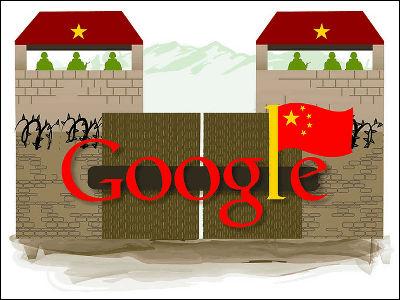Iranian developers confess how online censorship and sanctions in the international community make development difficult

by
Iran , an Islamic state in the Middle East, is one of the world's leading producers of oil, and has been criticized and sanctioned by the international community for its nuclear development . Such restrictions on the Internet are strictly enforced in Iran, and software developers in Iran are in a difficult situation, said Shahin Sorkh , a developer living in Iran.
How is it like to be a dev in Iran | Shahin Sorkh's Blog
https://shahinsorkh.ir/2019/07/20/how-is-it-like-to-be-a-dev-in-iran
There are many countries in the world that do Internet censorship, but in particular Iran has strong Internet restrictions. Even media such as BBC and Fox News, SNS such as Twitter and Facebook, message applications such as Telegram, WeChat, and SnapChat, YouTube, and SourceForge subdomains of source code repositories are inaccessible in Iran.
Sorkh points out that the situation requires Internet filtering and censorship in order for a totalitarian state like Iran to survive. Although there are VPN services and proxy servers that block Iranian official approval blocking, these communications are likely to be monitored by the government. As a result, IT companies doing filtering services and cyber censorship in Iran get a lot more rewards than typical IT companies, Sorkh says.
Iran is not the only country with strict Internet regulations. For example, in Kazakhstan , which is a one-party dictatorship state in Central Asia, it is reported that the government has been forced to introduce a root certificate for government certification, and that encrypted HTTPS communications are intercepted by the government by man-in-the-middle attacks . The
A dictatorship forces the nation to introduce a root certificate of government certification, and a man-in-the-middle attack by an ISP is also confirmed-GIGAZINE

In addition, it is not only censorship by the Iranian government that threatens Iran's developers, but sanctions from the international community are also causing serious damage. Sanctions by the international community seem to be a big problem for developers as they can not use free source software or open source software. Slack, a business-oriented communication service, took steps to ban its use in 2018 from areas such as Cuba, Iran, North Korea, Syria, which are the target economies of the United States, and Crimea, Ukraine. As a result, many Iranian users have been suspended without prior notification and lost data on Slack. In the Slack case, those who lived abroad at the time of the sanctions and have not returned to Iran for many years, and those who simply traveled to the sanctioned countries in the past were also forced to suspend accounts. It is supposed to be
Also, financial sanctions have been a pain for developers. Iranian developers who have difficulty obtaining MasterCard or VISA credit cards can not use services that require specific credit cards to use, such as Amazon Web Services provided by Amazon . Also, you can't buy anything on Amazon or eBay.

by
Sorkh admits that the situation in which these Iranian developers are being driven may be difficult for developers in other countries to understand. But Sorkh argues, 'Imagine developing new technology development for the company without any prior knowledge.' Iran has complained that it is difficult to find the necessary technical data for software development.
For example, if you search Google for the necessary knowledge, Iranian developers find links to many websites and official documents. However, if you click on the link, you will see 'You can not offer a page because you are sanctioned by the United States', and you will be forced to look for a page that will be displayed in Iran. After all, the necessary information for development can not be obtained, and if the boss says, 'This technology can not be implemented in Iran,' the work will be fired.

by
Sorkh points out that in order for a developer to survive in Iran, he must scratch and hide two obstacles: government censorship and sanctions from other countries. For example, using a proxy server to view sanctioned websites is one way to use websites not normally seen by foreign sanctions, and it is possible to steal the sanctions offered by Shareefe University of Technology . There is also a proxy server. However, using the services provided by the government including the educational institution intercepts the contents of communication, and there is no point in the case of websites that the government itself censors.
The Iranian government also offers VPN services, but the government also offers security issues. On the other hand, private illegal VPN services are also sold by private companies, but it seems that this is expensive and not accessible to all Internet users.
Alternatively, using Tor, which is an anonymous communication system, is an effective way to avoid both censorship and sanctions, but there are servers that can not be accessed using Tor, and Google is required to reCAPTCHA again and again. Sorkh says, even stress. Also, of course, using Tor from inside Iran is not so easy, and it is necessary to somehow use Tor through an external site.
Mr Sorkh wrote this claim to convey how difficult it is in Iran to use the Internet that the general public uses without thinking. Sorkh points out that many people don't know about the inability to use YouTube, the sudden loss of data in the service without notice, and the difficulty of stealing censorship and sanctions. All these inconveniences experienced by Iranian developers only occur because they 'live in Iran', and people around the world don't care about that, Sorkh said .

by WorldSkills
Related Posts:
in Note, Posted by log1h_ik







